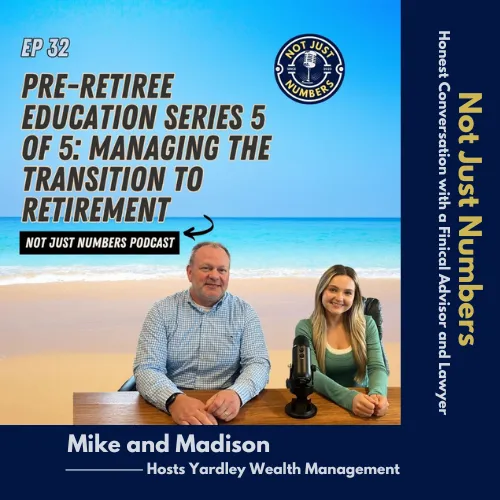Pre-Retiree Education Series 5 of 5: Managing the Transition to Retirement
Hosts: Madison Demora and Mike Garry
Episode Overview
In this final installment of the Pre-Retiree Education Series, Mike Garry and Madison Demora explore the crucial aspects of transitioning into retirement. The episode goes beyond financial considerations to address the holistic nature of retirement planning, including maintaining relationships, physical and mental health, and creating a fulfilling post-career life. Mike emphasizes the importance of comprehensive planning that encompasses both the practical and emotional aspects of this significant life change.
Listen to Our Podcast On:
Timestamps
- 00:08 – 00:50 – Introduction / Topic Introduction: Managing the Transition to Retirement
- 00:51 – 01:15 – Key retirement Planning Decisions
- 01:16 – 03:08 – Importance of Relationships and Legal Considerations in Retirement
- 03:09 – 04:03 – Practical Steps for a Happy and Productive Retirement
- 04:05 – 05:06 – Managing Physical and Mental Health & Essential Legal Documents
- 05:07 – 06:43– Balancing Relaxation and Activity, and Financial Strategies for Retirement Security
- 06:44 – 08:30– Maintaining and Strengthening Relationships
Follow Us on Social Media
Stay updated with the latest episodes and news by following us on social media:



